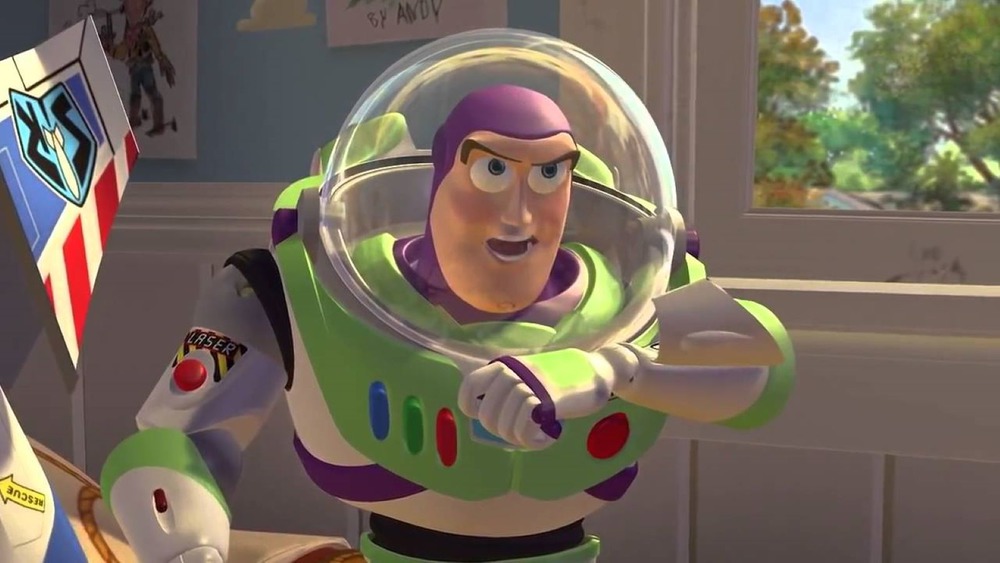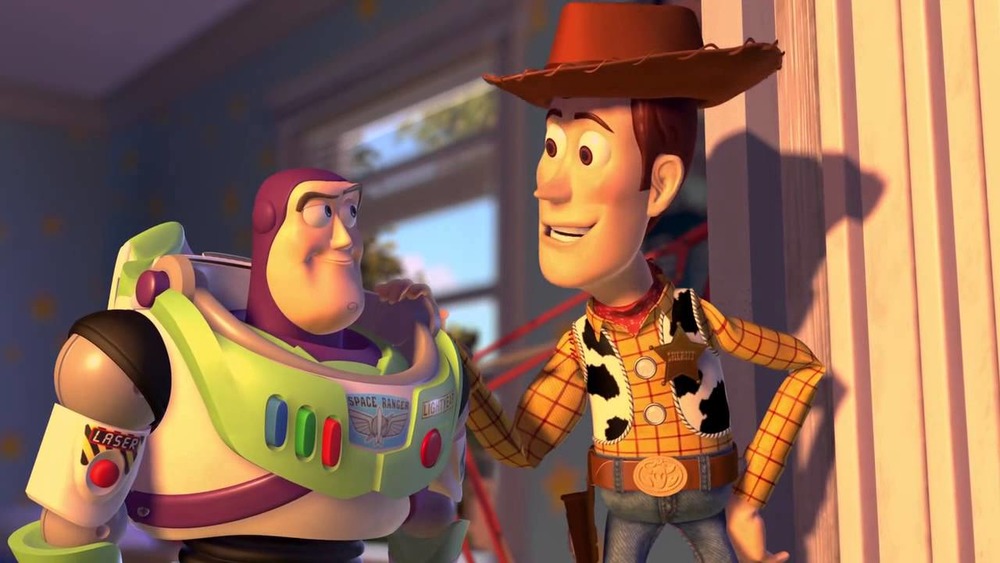A Puzzling Buzz Lightyear Plot Hole Has Finally Been Addressed
Pixar is among the most beloved film studios out there, responsible for iconic movies like Monsters, Inc. and classics-in-the-making like Soul. After years of short films, commercials, and effects work, Pixar's storied legacy began in earnest in 1995 with a little film called Toy Story, which spawned three sequels and a legion of fans worldwide who wanted Slinky Dogs and Mr. Potato Heads of their own.
As the title implies, it's the story of a group of toys, all owned by a kid named Andy (John Morris). Whenever Andy's not around, they have lives, personalities, and quirks of their own. Woody (Tom Hanks), a sheriff doll who just so happens to be Andy's favorite toy, is the de facto leader of this community of toys, happily keeping track of everything and everyone. But the arrival of Buzz Lightyear (Tim Allen) — a "Space Ranger" toy Andy gets for his birthday — throws things out of balance.
Buzz has all sorts of impressive gadgets and gizmos which draw everyone's attention — and Woody's jealousy, since Andy is the most impressed of all. To top it all off, Buzz doesn't believe he's a toy at all, but a real Space Ranger. Funnily enough, though, he stops moving when people are around, just like the rest of the toys. The inconsistency isn't addressed in the film, and Pixar has kept quiet about it in the years since. In a December 2020 interview with HuffPost, however, the animation giant finally broke its silence on this Buzz mystery.
What really matters in Toy Story
Pete Docter, director of Soul and Pixar's chief creative officer, was the one to address the Buzz quandary, probably knowing in the back of his head he was about to debunk years upon years of fan theories on the subject. "We went through a lot of discussion on Toy Story, the first one," he said, "about like, 'If Buzz doesn't know he's a toy, why does he go rigid when a kid walks in the room?' We had a lot of explanations and talk about that, too. And in the end, nobody cared." Yep — that's it!
It may sound apathetic, but Docter shed light on other Pixar enigmas as well, supporting the Buzz decision (or lack thereof) with greater context. As he put it, things like Buzz's instinct to go still around people, or the state of Boo's parents in Monster's, Inc., or the origins of superpowers in The Incredibles aren't essential to the main characters or plot of the films, so why should they matter to the audience? In other words, it's all about maintaining focus. Why pile on plot points that — no matter how interesting they might hypothetically be — have no bearing on a movie's emotional throughline? "[Y]ou just have to kind of try to guess where the audience is going to find importance," Docter said, "or at least push their interest there."
It's an interesting take, and potentially a controversial one. Either way, all the hearts at Pixar are in the right place when they choose to forego such details in favor of empathetic characters and touching stories. Speaking about Soul specifically, Docter put it best: "I'd like to hope that the things that we're talking about in the film — you know, what is going on in our lives? What's important? — all of that will still be questions that we're asking." With Lightyear, starring the voice of Chris Evans as the "actual" Space Ranger Buzz Lightyear, on its way, Pixar's sentiment is definitely something to keep in mind.

